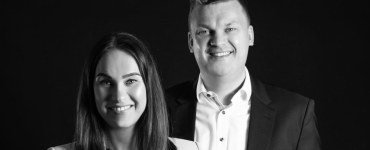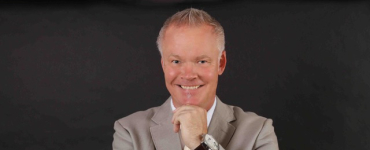Our world is facing significant challenges. One thing is certain: As players in the Internet industry, we are part of the solution. In an interview, eco’s Managing Director Alexander Rabe explains the contribution that digital, disruptive technologies make to overcoming challenges such as climate change and how member companies can get involved in the campaign “We are part of the solution – the Internet Industry”, which focuses on the positive sides of digitalisation.
Our world is currently facing many challenges. From your point of view as eco’s Managing Director, to what extent does digitalisation help find answers to these challenges?
Alexander Rabe: I am firmly convinced that we as humanity will only be able to master the major issues of the future with the help of digital technologies and applications. Digitalisation provides the tools to tackle society’s most burning issues, such as climate change, the sustainable use of our resources, food and nutrition security, or helping to detect serious diseases such as cancer at an early stage.
There is immense potential in the area of sustainability alone. To achieve this, the digitalisation and sustainability topic areas must be considered planned together from the very beginning. We have long been emphasising this point with the Alliance for the Strengthening of Digital Infrastructures in Germany under the umbrella of the eco Association.
Used sensibly, digitalisation will significantly reduce the CO2 footprint of our societal and economic activities in the medium term. Connected mobility, for example, optimises traffic flows and will save up to 50 per cent of CO2 emissions in urban car traffic by 2030. One day of home office per week saves 1.6 million tons of CO2 per year. The investment in new types of technology is also worthwhile: Internet access via copper cable (VDSL) requires around five times more energy than network access via fibre optic cable, and mobile Internet applications via 5G also easily save 80 per cent of the previous energy requirement compared with 3G. In purely mathematical terms, the waste heat from the data centres in the German city of Frankfurt am Main alone could independently heat all of the city’s offices by 2030. However, to achieve these goals, we must act together and be clear about the objectives.
Digital infrastructures and digital services are, therefore, part of the solution and contribute to the UN’s 17 Sustainable Development Goals, not only in an ecological sense.
It is precisely these positive aspects that are the focus of our “We are part of the solution – the Internet industry” campaign. However, here we not only highlight use cases and best practices that pay attention to sustainability aspects, but also, for example, IoT-based smart farming solutions to combat world hunger, health care technologies that make everyday life easier for senior citizens or persons with handicaps, or digital platforms that promote social cohesion and humanitarian causes. In short: We welcome all stories that use technology to make our world a little bit better.
How can member companies get involved in the campaign?
Rabe: As campaign sponsors, we offer our members extensive opportunities for participation – for example, in the form of the integration of use cases and best practices in our impulse paper, which we commissioned from the management consultancy Arthur D. Little. With RBB presenter Sven Oswald, we will also produce a short series of reports in which we tell the positive stories of digitalisation.
The centrepiece of our campaign will be an accompanying landing page – again, branding measures or testimonial quotes lend themselves to this. Sponsors can also participate as panellists in discussions with policymakers and Internet industry leaders under the motto “We are part of the solution – the Internet Industry” or join us as a guest in our podcast special.
What is the most beautiful use case for you personally that most strongly illustrates the positive effects and good things about digitalisation?
Rabe: There are now so many examples that show that digitalisation can make our lives a bit better if we only want it to and use digital technologies and applications in a meaningful way.
This starts with platforms for community and neighbourhood groups, digital aids for the blind, approaches to digital education as a basis for social participation, and CO2 calculators with compensation tools – or even deep-tech applications of AI that optimise production processes or enable optimised yields with minimal fertiliser use in agriculture. High-performance computing helps us understand the world a little better and develop models of climate change, possible pandemics or other natural disasters that allow us to change our actions on this planet for a sustainable future. There are so many examples that it’s hard for me to single out any one of them. This is one of the reasons why we launched our campaign with extensive participation opportunities for our members so that everyone can really show and explain their examples.
I am really looking forward to the results and the exchange on this!
Thank you very much for the interview!




